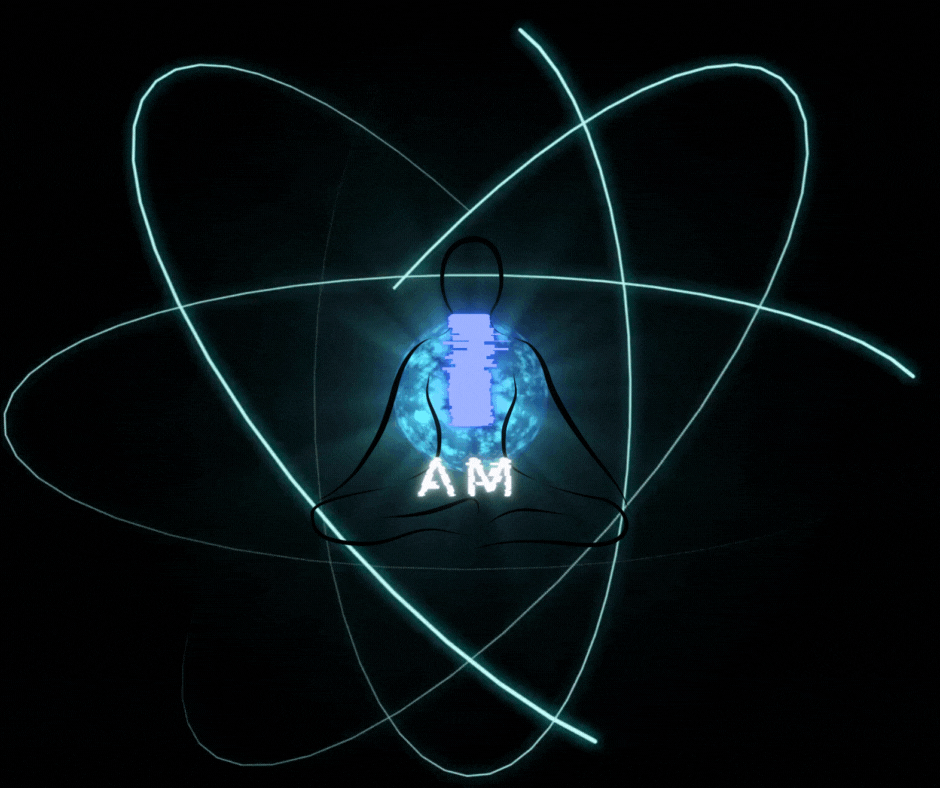
Decoding the Divine Mystery The Great “I Am”
Have you ever pondered the deeper meanings in life, or sought to understand the profound mysteries of existence? If so, you’re not alone. The concept of “I Am” is one that has intrigued theologians, philosophers, and spiritual seekers for centuries. This phrase, simple yet infinitely complex, holds within it layers of meaning and wisdom that can transform our understanding of ourselves and the universe.
In this blog post, we’ll explore the multifaceted concept of “I Am.” We’ll dig into its theological roots, philosophical implications, and spiritual significance. By the end, you’ll have a richer understanding of why this idea has captivated minds and souls throughout history. Whether you’re a theology enthusiast, a philosophical thinker, or a spiritual seeker, there’s something here for you.
What Does “I Am” Mean?
Theological Roots
In theology, “I Am” is most famously associated with God’s self-identification in the Bible. When Moses encounters God in the burning bush, he asks for God’s name. God’s response is, “I AM WHO I AM” (Exodus 3:14). This statement is profound, suggesting that God’s essence is existence itself. Unlike humans, who exist but had a beginning, God simply is.
This phrase invites us to consider the nature of divinity. In many religious traditions, God is viewed as eternal, unchanging, and self-sufficient. The declaration “I Am” encapsulates these attributes, providing a succinct yet powerful description of the divine nature. It also sets God apart from all other beings, emphasizing His uniqueness and supremacy.
Philosophical Implications
From a philosophical standpoint, “I Am” opens up a myriad of questions about existence, identity, and reality. René Descartes famously said, “I think, therefore I am,” linking existence to consciousness. In this sense, “I Am” serves as a foundational statement about the nature of being. It suggests that to be is to be aware, to perceive, and to understand.
This idea has far-reaching implications. It challenges us to consider what it means to exist and how our awareness shapes our reality. Are we simply physical entities, or is there something more? By contemplating “I Am,” we engage in a deeper exploration of our own nature and the nature of the universe.
Spiritual Significance
On a spiritual level, “I Am” serves as a mantra for self-realization and enlightenment. In many spiritual traditions, recognizing one’s own being is a path to understanding the divine. The statement “I Am” becomes a tool for meditation, helping individuals connect with their inner selves and, by extension, with the universe.
This practice encourages a sense of unity and interconnectedness. By focusing on “I Am,” we can transcend the ego and experience a state of pure being. It’s a reminder that, at the core, we are all part of a greater whole. This realization can lead to a profound sense of peace and fulfillment.
The Historical Context
Biblical Origins
The phrase “I Am” has a rich historical context, particularly within the Judeo-Christian tradition. In the Old Testament, God’s declaration to Moses is a pivotal moment. It not only reveals God’s name but also establishes His authority and power. This moment is a turning point in the narrative, marking the beginning of a new covenant between God and His people.
The significance of “I Am” extends beyond this single event. Throughout the Bible, it serves as a reminder of God’s presence and involvement in the world. It reinforces the idea that God is always with His people, guiding and protecting them. This assurance has provided comfort and inspiration to countless generations.
Ancient Philosophies
The concept of “I Am” is not limited to religious texts. Ancient philosophers also grappled with the nature of existence and identity. For example, Greek philosophers like Parmenides and Heraclitus explored ideas about being and becoming. Parmenides argued that reality is unchanging and eternal, while Heraclitus believed that everything is in a constant state of flux.
These differing views highlight the complexity of the concept. They show that “I Am” can be understood in various ways, each offering unique insights into the nature of reality. By examining these ancient philosophies, we can gain a deeper appreciation for the timeless nature of these questions.
Modern Interpretations
In modern times, the phrase “I Am” has been interpreted in new and diverse ways. Some see it as a statement of personal empowerment, emphasizing the importance of self-awareness and self-affirmation. Others view it through the lens of existentialism, exploring themes of meaning and purpose in a seemingly indifferent universe.
These interpretations reflect the evolving nature of human thought. They show that, even in today’s fast-paced world, the fundamental questions of existence remain relevant. By engaging with these modern perspectives, we can continue the age-old quest for understanding and meaning.
The Power of Self-Awareness
Knowing Thyself
One of the most important aspects of “I Am” is the emphasis on self-awareness. To say “I Am” is to acknowledge one’s own existence and individuality. This recognition is the foundation of personal growth and development. By understanding who we are, we can make more informed choices and live more authentic lives.
Self-awareness involves a deep and honest examination of oneself. It requires us to confront our strengths and weaknesses, our desires and fears. This process can be challenging, but it is also incredibly rewarding. By knowing ourselves, we can unlock our full potential and achieve greater fulfillment.
Living Authentically
Authenticity is another key aspect of “I Am.” To live authentically means to be true to oneself, to act in accordance with one’s values and beliefs. This authenticity is essential for personal happiness and well-being. When we live authentically, we are more likely to experience a sense of purpose and satisfaction.
Living authentically also involves being honest with others. It means expressing our true thoughts and feelings, rather than hiding behind a facade. This honesty fosters deeper and more meaningful relationships, creating a sense of connection and community.
The Journey Within
The path to self-awareness and authenticity is often described as a “journey within.” This journey involves introspection, reflection, and mindfulness. It requires us to look beyond the surface and explore the deeper layers of our being. Along the way, we may encounter obstacles and challenges, but these are opportunities for growth and learning.
The journey within is a lifelong process. It is not about reaching a final destination, but about continually evolving and growing. By embarking on this journey, we can discover new aspects of ourselves and deepen our understanding of what it means to be alive.
Practical Applications
Meditation and Mindfulness
One of the most effective ways to explore the concept of “I Am” is through meditation and mindfulness. These practices encourage us to focus on the present moment and connect with our inner selves. By cultivating a state of awareness, we can gain new insights into our thoughts, emotions, and behaviors.
Meditation and mindfulness can also help reduce stress and anxiety, promoting a sense of calm and clarity. They provide a space for reflection and self-discovery, allowing us to explore the deeper dimensions of our being.
Affirmations and Positive Thinking
Affirmations are another powerful tool for self-awareness and personal growth. By repeating positive statements about ourselves, we can reinforce our strengths and build confidence. Affirmations like “I am strong,” “I am capable,” and “I am worthy” can help shift our mindset and cultivate a more positive outlook.
Positive thinking is closely related to affirmations. It involves focusing on the good in our lives and maintaining an optimistic perspective. By practicing positive thinking, we can enhance our resilience and improve our overall well-being.
Journaling and Reflection
Journaling is a valuable practice for self-exploration and reflection. By writing down our thoughts and experiences, we can gain new insights and identify patterns in our behavior. Journaling allows us to process our emotions and make sense of our experiences, fostering greater self-awareness and understanding.
Reflection is an essential part of journaling. It involves looking back on our experiences and considering what we have learned. By reflecting on our actions and decisions, we can identify areas for growth and set goals for the future.
The Role of Community
Finding Support
While the journey of self-awareness is deeply personal, it is also important to find support from others. Being part of a community provides a sense of belonging and connection. It allows us to share our experiences and learn from others.
Supportive communities can take many forms, from close-knit groups of friends to larger networks of like-minded individuals. These communities provide a space for mutual encouragement and growth, helping us stay motivated and inspired.
Sharing Wisdom
One of the greatest benefits of being part of a community is the opportunity to share wisdom and knowledge. By exchanging ideas and insights, we can deepen our understanding and broaden our perspectives. This collective wisdom enriches our personal journeys and fosters a sense of interconnectedness.
Sharing wisdom also involves listening to others. By being open to different viewpoints and experiences, we can learn and grow together. This collaborative approach creates a supportive environment where everyone can thrive.
Building Connections
Building connections within a community is essential for personal and collective growth. These connections provide a network of support and encouragement, helping us overcome challenges and celebrate successes. They create a sense of unity and shared purpose, fostering a positive and uplifting atmosphere.
Strong connections also enhance our sense of belonging. They remind us that we are not alone in our struggles and aspirations. By building meaningful relationships, we can create a community that nurtures and sustains us.
The Transformative Power of “I Am”
Shifting Perspectives
The concept of “I Am” has the power to transform our perspectives and change the way we see ourselves and the world. It encourages us to look beyond the surface and explore the deeper dimensions of our being. This shift in perspective can lead to profound insights and new ways of thinking.
By embracing “I Am,” we can challenge limiting beliefs and expand our horizons. We can cultivate a sense of curiosity and wonder, opening ourselves up to new possibilities. This transformation empowers us to live more fully and authentically.
Empowering Change
“I Am” is a statement of empowerment. It reminds us that we have the power to shape our lives and make meaningful changes. By recognizing our own strength and potential, we can take bold steps towards our goals and dreams.
Empowerment involves taking responsibility for our actions and decisions. It means acknowledging our ability to create positive change and taking proactive steps to achieve it. This sense of agency is essential for personal growth and fulfillment.
Cultivating Gratitude
Gratitude is another important aspect of “I Am.” By appreciating the present moment and recognizing the goodness in our lives, we can cultivate a sense of contentment and joy. Gratitude shifts our focus from what we lack to what we have, fostering a positive and fulfilling mindset.
Practicing gratitude involves regularly reflecting on the things we are thankful for. This can be done through journaling, meditation, or simply taking a moment to pause and appreciate the beauty around us. By cultivating gratitude, we can enhance our overall well-being and find greater satisfaction in life.
Conclusion
The concept of “I Am” is a powerful and multifaceted idea that has captivated minds and souls throughout history. It invites us to explore the deeper dimensions of our being and connect with the divine. By understanding and embracing “I Am,” we can cultivate self-awareness, authenticity, and personal growth.
Whether you are a theology enthusiast, a philosophical thinker, or a spiritual seeker, the journey of “I Am” offers valuable insights and practical applications. It encourages us to look within, build meaningful connections, and live with a sense of purpose and fulfillment.
If you are ready to explore the transformative power of “I Am,” consider joining a community of like-minded individuals or seeking guidance from spiritual mentors. Together, we can continue the age-old quest for understanding and meaning, enriching our lives and the lives of those around us.
